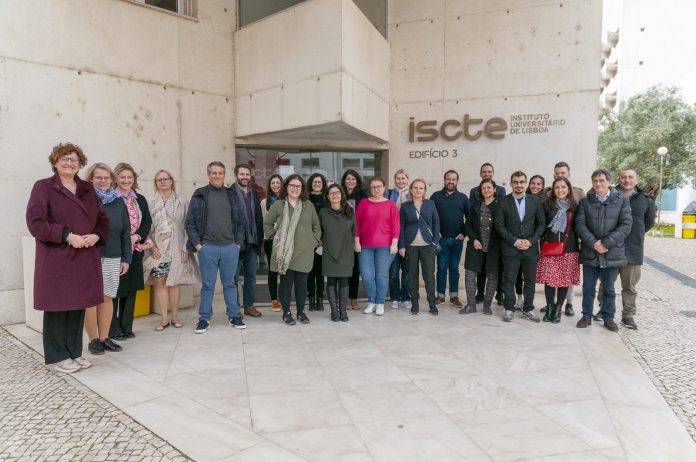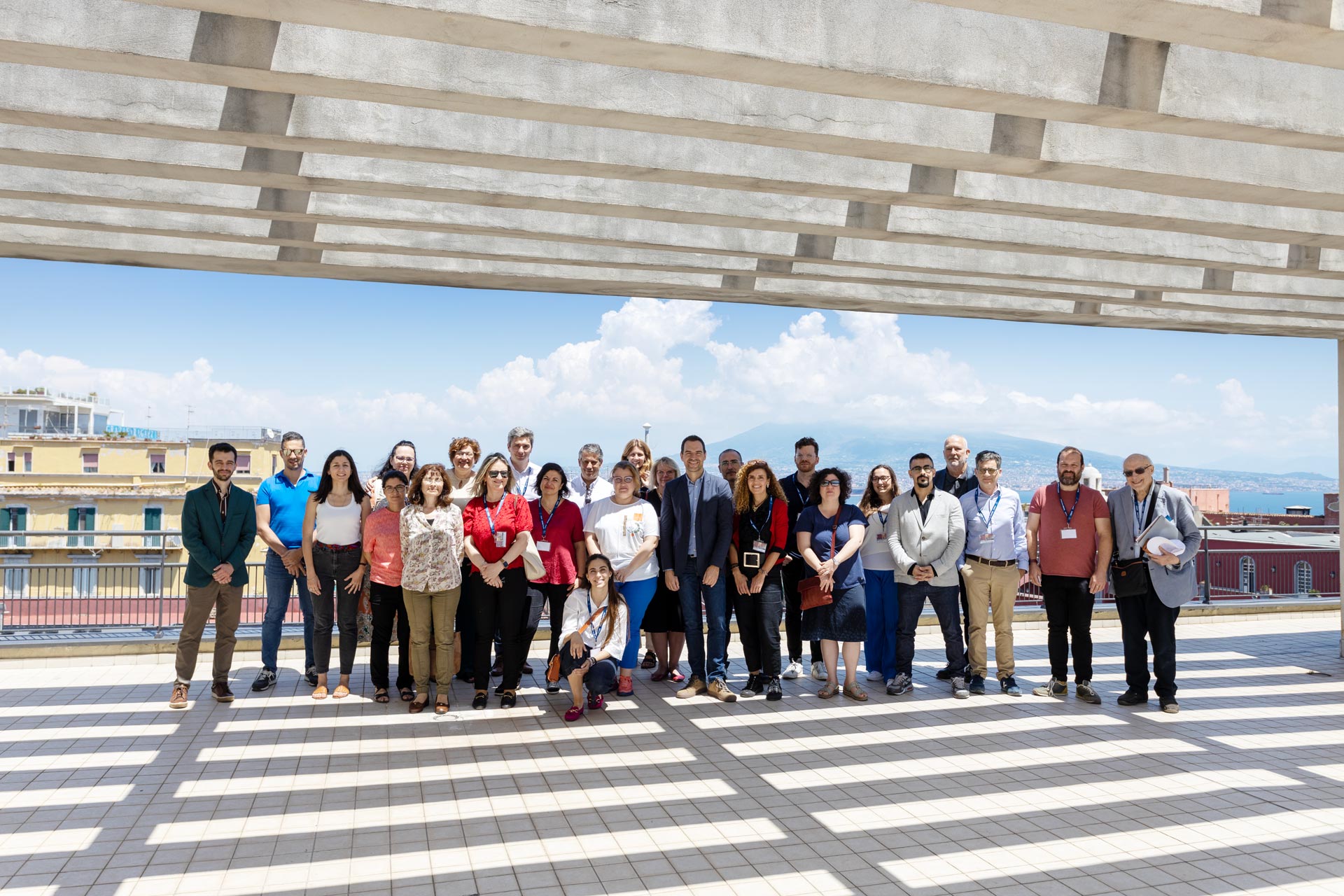
In recent years, the digital transition has emerged as a central goal for the European Union. This shift was accelerated by the COVID-19 pandemic and further emphasized by the subsequent Recovery and Resilience Mechanism Framework. The digital evolution encompasses all facets of life, including the digitization of businesses, markets, healthcare, public administration, and the general lifestyle of individuals. Digital transition aims at making actions more effective, efficient, and prompt; reducing manual processes; ensuring oversight and transparency in every activity; and saving space, time, and resources. It also aims to improve connections with locations that are “physically” distant as well as with vulnerable or underprivileged groups. Among the most underprivileged groups across Europe are certainly NEETs (young people Not in Employment, nor in Education or Training). Among the services that are vital to support them are the Public Employment Services (PES). These services are going through a fast digitalization process with potential side-effects for those groups in greater needs.
The Track-IN project: Highlights
The Track-IN project – Public Employment Services Tracking Effectiveness in Supporting Rural NEETs, funded by the Youth Employment Fund of the EEA & Norway Grants aims to provide an assessment model for the effectiveness of the support given to young NEETs by PES in enhancing their employment opportunities. The research plan focuses specifically on young individuals between 25 and 29 years old living in rural areas. The project intends to determine if the digitization of services has made them more accessible to youth who, according to literature, face greater disadvantages than their peers in urban settings. Being a NEET in a rural environment entails confronting tangible barriers, such as insufficient financial resources for tertiary education or limited access to on-site PES, and intangible barriers like lower educational capital, language challenges (for non-native speakers), or traditional views on gender roles and professional development. These challenges, although found everywhere, are particularly more intense in rural areas than in (sub)urban settings.
The Track-IN project involves partners from Portugal (ISCTE – Lisbon, Leading partner), Spain (University of Girona and Malaga), Italy (Università Cattolica del Sacro Cuore Milano-Brescia and Parthenope University – Naples), Lithuania (Vilnius University), Estonia (Tartu University), and Bulgaria (Southwest University “Neofit Rilski” – Blagoevgrad). Additionally, the International Labour Organization (ILO) and the University of Heidelberg in Germany participate as experts. The team includes sociologists, statisticians, economists, psychologists, and educational scientists. The theoretical framework for the project is the bioecological model, which seeks to understand the factors and processes impacting personal development by considering the various environments individuals are part of, whether they are more proximal or more distant. This model facilitates the comprehensive measurement of variables in interdisciplinary research and provides data to formulate appropriate interventions and policies.
The transformation of many services from in-person to electronic platforms offers rural NEETs an unparalleled opportunity to bridge physical gaps. However, it is essential to understand some key questions which are addressed by our project:
- Which types of services are provided in digital mode?
- Which new opportunities does digitalization create for young people?
- Which form of contact, digital or human-mediated, is more effective?
- How to measure the level of digitalization of PES?
Some preliminary results of the Track-IN project
To address these queries and in line with the theoretical framework, we analyzed active policies and distributed questionnaires to samples of NEETs in the various countries involved as well as to PES operators who were also interviewed. From the initial data analysis of the collective sample, which comprises 4,277 NEETs—of which 2,003 reside in non-urban areas—several intriguing preliminary results emerge concerning the behaviors and sentiments of these young individuals about the skills required to enter the workforce. Firstly, regarding digitalization and considering the different types of services provided by PES (like traineeship, apprenticeship, and continuous education), in 25% of the cases they were delivered entirely online while in 39% of the instances, these services were provided exclusively face-to-face. Regarding their sentiments, when questioned about what they deemed as the most crucial factors for securing a job, all agreed about the significance of teamwork skills, especially among rural NEETs. The value of foreign language proficiency was especially underlined in urban areas. However, in rural regions, this factor was ranked high only in Portugal and Estonia. The importance of ICT skills is particularly recognized in Estonia and Bulgaria, but only in Italy and Portugal is this sentiment more prevalent in rural areas. No more than 70% of NEETs viewed a high level of education as being crucial for securing a job. On the contrary, the participants in our study assessed professional skills as being the most important to achieve job security. More in-depth analyses, related also to the extent of PES digitalization (whether total, partial, or absent), are still underway and aim to contribute to the limited literature on the topic.
What’s coming next?
A clear takeaway from the current literature is that engaging vulnerable youth, like NEETs, with PES entails addressing the issue of trust in digitalization. Trust in digitalization is a three-dimensional concept, dispositionaltrust, seen as the individual’s overall inclination to trust digitalization regardless of contexts or specific systems; situationaltrust, which refers to variability of trust across contexts; and learnedtrust, corresponding to an operator’s evaluations of a system based on past interactions. All dimensions of trust in digitalization are challenged by the skills of young vulnerable people and their access to automated tools within the PES environment. NEETS must acquire digital competencies to understand the technical mechanisms of digitalization fully. But, as they express, relational skills are equally essential as they solely enable the genuine development of trust and, with it, social ties and social capital. At this stage, beyond mere techno-optimism, we can assert that digitalization offers both opportunities and challenges to young NEETs. Researchers and policymakers face the intricate and multifaceted social issue of grasping a detailed and complex perspective, such as that offered by the bioecological model. The goal is to increasingly engage the youth in co-constructing research projects for better understanding and interventions. These should be truly effective, and digitalization should genuinely serve people—citizens, operators, workers, and policymakers—be genuinely inclusive and hinge on the development of trust. All these elements of PES digitalization’s impact on rural NEETs will soon be described by the Track-IN consortium in a series of papers to be published in early 2024. A brief of the main results of these reports will made available here.
 Elena Marta – Università Cattolica del Sacro Cuore – Milano-Brescia; Francisco Simões – University Institute of Lisbon
Elena Marta – Università Cattolica del Sacro Cuore – Milano-Brescia; Francisco Simões – University Institute of Lisbon

